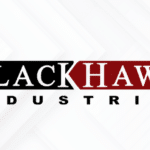Industrial vending machines and the inventory control software that makes them so valuable to both distributors and end-users are becoming big business. And demand for them continues to grow, with a quarter of end-user companies in a recent Peerless Research Group survey already using vending for MRO consumables and another 38 percent saying they plan to explore the use of vending machines within the next two years. The market is expected to reach $1.4 billion by 2025, according to Grand View Research.
We’ve spoken with a growing number of distributors who are interested in buying vending machines and selling them at a markup to their customers. In most cases, we’ve found that this model doesn’t work. We believe distributors should be placing the vending machines for free as a value-added service. Here’s why:
The competition is giving the machines away for free
The challenge with trying to mark up and sell vending machines to customers is that there are plenty of distributors out there – including the largest, Fastenal – willing to place machines with customers for free. So, in most cases, customers won’t want to pay for them as a capital expense. Put yourself in their shoes: Your customers would rather spend that money on payroll and equipment that directly contribute to producing more, so that they can sell more.
Placing the machine for free makes it less about the machine, and more about the service
In our experience, distributors that approach vending as a service instead of a product see greater success. When you place a vending machine on a customer’s plant floor, and (this is key) ensure that your customer has access to mission-critical items onsite, 24/7, the customer has little reason to switch to another supplier. The service you are providing them is invaluable. In fact, you may be surprised at how much additional spend customers are willing to give you in exchange for the vending machine and VMI capabilities. One of our distributor customers, for example, was surprised to see a sales increase of more than 40 percent with one customer after placing a vending machine. As long as your product price is competitive, the benefits of vending to the end-user will outweigh price as the driving factor in your relationship with them.
Selling the machine could result in less profit, not more
When you sell a vending machine, you reap a one-time profit. It’s time to think differently about the machines. Stop viewing them as a product to be sold and start viewing them as sales tools. Yes, even for lower-cost items like safety gloves (a popular vending machine product), vending can be profitable for distributors. In fact, it’s no longer true that industrial vending machines only make sense for large facilities with high volume and high-margin products. The cost of vending machines and inventory management technology is falling, giving distributors an opportunity to streamline and optimize inventory management for customers of all sizes for both high- and low-margin product categories. (Also, because of the Tax Cuts and Jobs Act passed earlier this year, distributors can write off up to 100 percent of the cost of the vending machines, reducing their taxable income and offsetting some of the cost.)
End-users can see inventory reductions of up to 30 percent, and distributors can save on the labor that was previously required for in-person inventory counts and quote generation. That time can now be better spent actually selling, which we would argue is a better use of your valuable field sales reps’ time anyway.
With the recent news that Amazon Business will hit $10 billion this year in sales, 10 times its sales of just two years ago, distributors need to take a proactive stance to maintain their competitive advantage. You will continue to see growing pricing transparency and product commoditization, resulting in a price-obsessed customer base that puts you in the unfortunate position of having to choose between revenue leakage and price-driven margin pressure. Rather than engage in the ongoing race to the bottom, offer customers something else that they truly value. Inventory control (not the machines) can be that thing. Resist the temptation to sell machines outright; the value of vending machines goes far beyond the equipment itself.
Mark Hill has 40 years’ experience in industrial distribution and vending. He is the president of IMC Supply in Memphis, TN, and the founder of vending machine supply company 1sourcevend. Learn more at 1sourcevend.com. Contact him at mhill@1sourcevend.com.
Related Posts
-
BlackHawk Industrial accelerates expansion efforts with two key additions to its national supply chain solutions…
-
Worldpac generated about $2.1 billion in revenue and $100 million in EBITDA in its last…
-
Tim Cantu joins construction equipment distributor Gee Heavy Machinery to oversee its sales team and…




